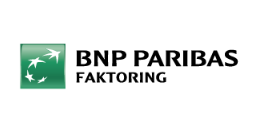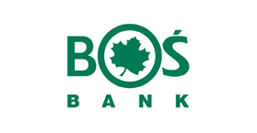Factoring vs other services
Factoring is a solution that helps to free up funds for the business. While a trader is to wait the issued invoices to be paid it is temporarily in a loophole. However, if it transfers the receivable to a factoring company, will be paid the most of the debt by factor. The full amount shall be settled up upon receipt of the full amount by the entrepreneur’s business contactor.
Perhaps such a formula seems to be complicated, this is why it is mistaken with other solutions. One can wrongly point factoring with the features of credit, debt collection and even insurance.
Factoring is a solution that helps to free up funds for the business. While a trader is to wait the issued invoices to be paid it is temporarily in a loophole. However, if it transfers the receivable to a factoring company, will be paid the most of the debt by factor. The full amount shall be settled up upon receipt of the full amount by the entrepreneur’s business contactor.
Perhaps such a formula seems to be complicated, this is why it is mistaken with other solutions. One can wrongly point factoring with the features of credit, debt collection and even insurance.

Factoring vs credit
Factoring is a way to raise funds to finance the day-to-day business. However it is not a form of credit. These services can be the alternatives to each other. Both are methods of raising funds. They can be also the complementary ones. Nothing prevents the entrepreneurs from using both the lending and factoring – to ensure the ongoing company’s liquidity.
The decision which one to choose depends on the company’s standings and its business’ strategy. One can see the significant differences between these.
In order to use the credit, the company must be in a good financial standing, to evidence a couple of years of stable operation and to establish the sufficient collaterals. To benefit from factoring one does not need to meet such conditions. Moreover, the process of obtaining funds is simple and swift. Should add, in the case of credit, the solvency risk of debtor’s nonpayment remains with the seller. While factoring, that risk is taken over by a factoring company. And so is the fundamental difference between the two services.

Factoring vs credit
Factoring is a way to raise funds to finance the day-to-day business. However it is not a form of credit. These services can be the alternatives to each other. Both are methods of raising funds. They can be also the complementary ones. Nothing prevents the entrepreneurs from using both the lending and factoring – to ensure the ongoing company’s liquidity.
The decision which one to choose depends on the company’s standings and its business’ strategy. One can see the significant differences between these.
In order to use the credit, the company must be in a good financial standing, to evidence a couple of years of stable operation and to establish the sufficient collaterals. To benefit from factoring one does not need to meet such conditions. Moreover, the process of obtaining funds is simple and swift. Should add, in the case of credit, the solvency risk of debtor’s nonpayment remains with the seller. While factoring, that risk is taken over by a factoring company. And so is the fundamental difference between the two services.

Faktoring vs debt collection
Not very seldom the entrepreneurs identify factoring with debt collection.
Mistake. Factoring companies take over the contractors’ nonpayment risk thus the economic situation of the seller business partner becomes their own business. However, they do not provide debt collection services to their clients robotically.
Let’s remember, the debt collection embraces many elements not present in factoring, such as enforced debt collection or securitization.
The basic aims of factoring are to finance the client’s business.

Faktoring vs debt collection
Not very seldom the entrepreneurs identify factoring with debt collection.
Mistake. Factoring companies take over the contractors’ nonpayment risk thus the economic situation of the seller business partner becomes their own business. However, they do not provide debt collection services to their clients robotically.
Let’s remember, the debt collection embraces many elements not present in factoring, such as enforced debt collection or securitization.
The basic aims of factoring are to finance the client’s business.

Factoring vs insuring the receivables
The concept of risk assignment occurs in the model of factoring service. Sometimes, this facility is associated shift the risk arising from debtor’s insolvency from the entrepreneur to a financial institution, however, the scope of benefits in both cases is different.
The insurance policy cover covers the entire seller’s turnover. In case of the factoring the service may cover only the particular invoices or the selected contractors.
But what distinguishes factoring to the greatest extent is focus on financing the seller’s business.
Factoring market in Poland grows rapidly. Its strength is in its efficiency in solving day by day business operations. The safety of client’s sales, and consequently strengthening of the company’s liquidity, is one of the condition for the successful growth of any type of the business. Factoring meets these demands. This is why factoring is gaining more and more recognition of clients. The awareness of the benefits it brings grows among smaller entrepreneurs hurriedly both among the SME businesses and corporates.
Right now 8,000 clients uses factoring facilities in Poland. Last year they entrusted to the factoring companies the receivables totaling PLN 176 billion. This cooperation is developing very dynamically. The factors’ turnover raises on average by 18% y. o y., such the ratio evidences the rapidly up warding trust that the clients pin on the factoring services.

Factoring vs insuring the receivables
The concept of risk assignment occurs in the model of factoring service. Sometimes, this facility is associated shift the risk arising from debtor’s insolvency from the entrepreneur to a financial institution, however, the scope of benefits in both cases is different.
The insurance policy cover covers the entire seller’s turnover. In case of the factoring the service may cover only the particular invoices or the selected contractors.
But what distinguishes factoring to the greatest extent is focus on financing the seller’s business.
Factoring market in Poland grows rapidly. Its strength is in its efficiency in solving day by day business operations. The safety of client’s sales, and consequently strengthening of the company’s liquidity, is one of the condition for the successful growth of any type of the business. Factoring meets these demands. This is why factoring is gaining more and more recognition of clients. The awareness of the benefits it brings grows among smaller entrepreneurs hurriedly both among the SME businesses and corporates.
Right now 8,000 clients uses factoring facilities in Poland. Last year they entrusted to the factoring companies the receivables totaling PLN 176 billion. This cooperation is developing very dynamically. The factors’ turnover raises on average by 18% y. o y., such the ratio evidences the rapidly up warding trust that the clients pin on the factoring services.







































